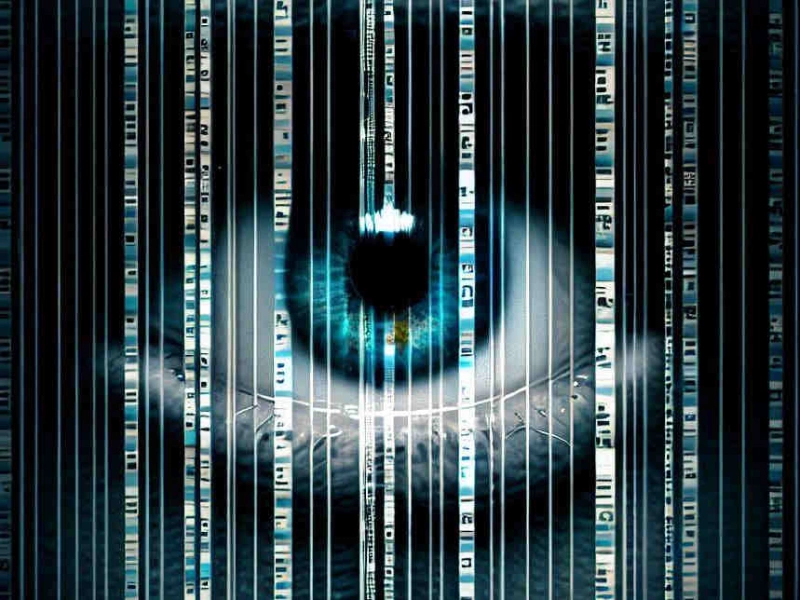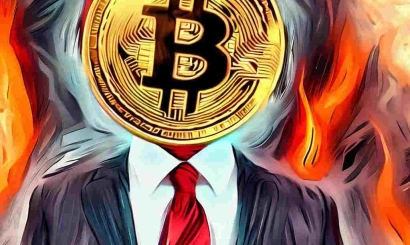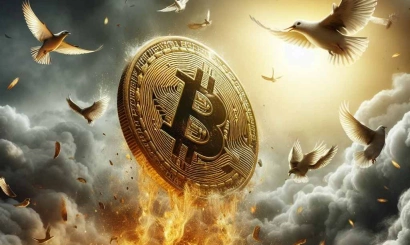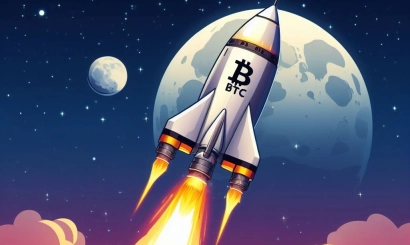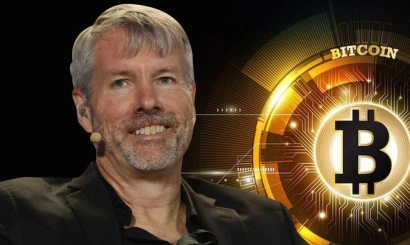Tokens for iris. What are the chances of the new project of the creator of ChatGPT?
Worldcoin cryptocurrency from the creator of ChatGPT Sam Altman was valued at $200 million on the day of its appearance.
We tell you what you need to know about the cryptocurrency from the creator of ChatGPT Sam Altman, how the economy of the Worldcoin project, which encodes people's data to distinguish them from robots, is organized, and whether it will become a "digital prison".
Chatbot ChatGPT allowed Sam Altman's OpenAI company to reach a valuation of almost $30 billion. Now his other project, Worldcoin, is valued at $3 billion, and the capitalization of its token on its first day of existence exceeds $200 million.
On Monday, July 24, the developers of Worldcoin held an airdrop (free distribution) of tokens of the same name to users of the World App. Cryptocurrency exchanges such as Binance, OKX, Bybit, Huobi, and others quickly opened trading in the token under the WLD ticker shortly after its appearance. Worldcoin hit a high of $3.31, but at the time of publication (July 24, 20:30 Moscow time) is trading around $2.21 with a market capitalization of $232 million, according to CoinMarketCap.
According to the technical documentation accompanying the Worldcoin token issue, the maximum circulating token supply is 143 million units, of which 43 million are distributed to users who have already been verified on the World App. Another 100 million tokens are allocated to market makers outside the U.S. to support trading turnover on exchanges. The project's tokenomics description states that 75% of the final volume of tokens will be available to the Worldcoin community, 13.5% to investors, 9.8% to the development team and 1.7% will be kept in reserve.
- What is the idea behind the project?
Representatives of Tools for Humanity, the company responsible for the development of Worldcoin, refuse to answer reporters' inquiries about the amount of money Altman himself was allocated during the token distribution. The company raised $115 million in a recent investment round led by crypto venture capital fund Blockchain Capital, with participation from Andreessen Horowitz's cryptocurrency fund (a16z crypto) and the venture capital arm of crypto exchange Coinbase.
What is Worldcoin? Why the creator of ChatGPT needs a catalog of all the inhabitants of the planet
The concept of the project as a whole is simple: as artificial intelligence becomes more and more active in everyday life, it will be increasingly difficult to distinguish between humans and machines. That's why we need a way to "prove the humanity" of people - a solution that Worldcoin calls proof of personhood.
Orb eye scanning device in the Tools for Humanity office. Source: worldcoin.org
Worldcoin scans people's eyeballs with the Orb device, a reflective metal ball that records information about a person's iris in the form of a cryptographic code. Everyone who has been scanned will receive periodic grants in WLD tokens, and the project's creators are positioning this as a form of universal basic income. Right now, the project has scanned the irises of just over 2 million people. These individuals, if they do not reside in the US, will each receive 25 WLD tokens in the form of an airdrop.
The developers also recently unveiled the World ID project, an app that will allow other apps to verify people using the Worldcoin platform.
- Why the token is needed
"The project itself is very interesting, as it is conceived to solve one of the main problems of the digital environment of the future - the identification of live people among bots with artificial intelligence. This is probably why Sam Altman, one of the founders of OpenAI, is developing this project. "He himself and his background in OpenAI are the calling cards of Worldcoin and add faith in the success of the project," argues the director of analytics at Shard, a cryptocurrency asset security platform
World ID is not a tool for KYC (know your customer) procedures in the full sense, but with its help, it will be possible to confirm the uniqueness of the user, his "reality" without disclosing personal data, Ivanov explains. Now, to create an account anywhere, you have to enter personal data, e-mail, and other information that would confirm the uniqueness of the user. When (and if) services will support World ID, users will be able to link an account to them and authenticate without providing personal data.
World ID may be required for registration in social networks and other non-financial services, for management in decentralized autonomous organizations (DAOs), for airdrop (token distribution), on NFT platforms, etc. Services benefit from this to protect against bots and duplicate accounts, as well as to identify fake users. For now, the main role of the token is to attract new users to the system and monetize it. Later, when the whole system will be managed by DAO, WLD will be used as a so-called governance token to participate in community management.
Governance tokens are the basis for decentralized decision-making in projects, around which autonomous organizations (DAOs) are formed. To simplify, it is similar to the decision-making process of a company's shareholders, but projected into the realm of blockchain applications. Usually, users receive management tokens for loyalty and activity in the project community in the form of airdrops or buy them on cryptocurrency exchanges. Tokens allow users to vote on project development issues (the more tokens, the more "weight" of the vote). As a rule, voting is carried out through software smart contracts - in this case, the results of voting, if technically possible, are realized automatically.
So-called decentralized identity identification (DID) is a very trendy topic in recent years, explains Roman Nekrasov, co-founder of the ENCRY Foundation. It is usually mentioned in the context of blockchain technology and the Web3 sphere, while it is separately emphasized that this is exactly some new format of the interaction of a virtual entity of a person in the virtual world with other entities - the same people, bots, devices, etc.
"Worldcoin has a great advantage - that's Sam Altman and his investor skills. I am sure that WLD has a great marketing team and a well-thought-out effective promotion strategy," Nekrasov continues, adding that Ethereum co-founder Vitalik Buterin has spoken in favor of the project and its ideas, which means that the community of Ethereum supporters can help to promote the introduction of the WLD token. According to Nekrasov, it is unlikely that users will see any real benefit from DID in the near future, but on the horizon of 5-10 years, such initiatives will definitely be implemented en masse. Worldcoin may well be such an initiative.
- Prospects of the token
The idea of the project itself is not new, a similar scheme of forming a universal indicator is already offered, for example, by the team of the blockchain project Civic.
"In the case of Worldcoin - with their not new idea and their devices for identifying system participants, which not on a joke frightened conspiracy theorists - about any serious chances for success is not to talk about" Opponents of the project believe that the Worldcoin team creates a "digital prison", collecting biometric data of users. In their opinion, such a database can be used, among other things, to control people. Reports of the operator hacking the Orb device, which appeared in May 2023, also "narrowed the audience of the project's fans."
A deconstructed Orb device. Source: worldcoin.org
"The main criticism of the project is related to the storage of users' biometric data. - The distrust of biometrics collection systems on the part of users, from my point of view, is the main obstacle to the development of the project. Even though the developers provide the option of verification without storing biometric data, user distrust will still have to be overcome".
The second problem is regulatory restrictions on biometrics collection in many countries, including Russia, Ivanov adds. In the long term, the success of the project and the WLD token, he estimates, depends directly on the speed of adoption of the World ID standard by Internet services and the absence of government bans on its operation. "The project is interesting, the WLD token has real value as one of its elements and clear monetization. If the project does not stumble over the prejudices of users and states and can quickly expand the territory, the WLD token will be a good investment," the expert predicts.
Support from celebrities of such a scale as Sam Altman, whose projects are now in the rumor mill, is an important detail of promotion. "Worldcoin is a HYIP project. On the wave of people's interest in the platform's developments, the token may well work well as an investment," the expert admits. - At the same time, one should not exclude from the equation information about the secondary nature of the project idea, fears of conspiracy theorists, and mistakes made by the Worldcoin team. The combination of factors can quickly reduce the degree of interest of the audience in cryptocurrency.
- ChatGPT creator to launch Worldcoin cryptocurrency on July 24th
- Investors' worries. What will happen to Bitcoin in the coming week
- U.S. DOJ to strengthen crypto crime team
- Bankman-Fried's brother wanted to buy Nauru island with FTX clients' money
- ASUS NUC ROG arrives
- FTX sues Bankman-Fried for $1 billion in damages
- SEC says plans to appeal court ruling in Ripple case

